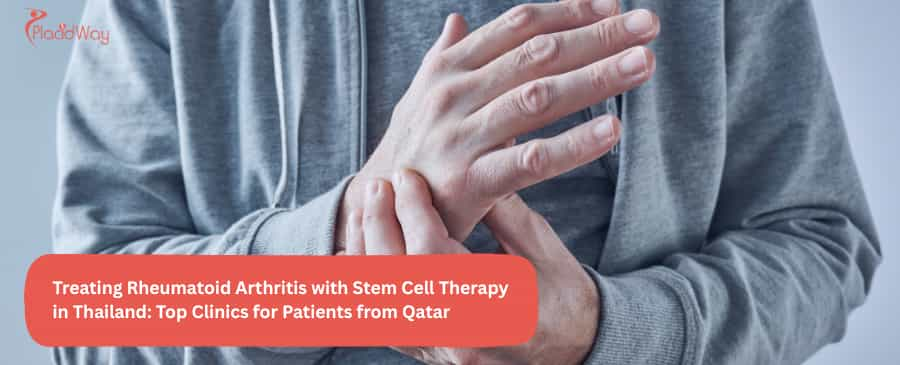
Key Takeaways
- Stem cell therapy for Rheumatoid Arthritis (RA) focuses on immunomodulation—calming the body's overactive immune response—and regenerating damaged joint tissue, offering a significant improvement in quality of life.
- Thailand is a premier destination for regenerative medicine, combining JCI-accredited hospitals, advanced stem cell cultivation labs, and world-class, culturally-sensitive hospitality.
- For patients from Qatar, Thailand offers direct flights, straightforward medical visa processes, and a high-value, cost-effective alternative to treatments in the US or Europe.
- Cost of Stem Cell Therapy for RA (Protocol) in Thailand: $15,000 – $30,000
- Cost of Stem Cell Therapy for RA (Protocol) in the USA: $20,000 – $50,000+ (Often in clinical trials)
- Cost of Stem Cell Therapy for RA (Protocol) in Germany: $20,000 – $35,000
- Cost of Stem Cell Therapy for RA (Protocol) in Mexico: $10,000 – $25,000
Understanding Rheumatoid Arthritis (RA) and Its Challenges
Rheumatoid Arthritis (RA) is a chronic autoimmune disease where the body's immune system mistakenly attacks its own joints, primarily the joint lining (synovium), causing painful swelling, inflammation, and eventual joint deformity.
Unlike the wear-and-tear damage of osteoarthritis, RA can affect more than just your joints. In some people, the condition can also damage a wide variety of body systems, including the skin, eyes, lungs, heart, and blood vessels.
Traditional treatments for RA focus on managing symptoms and slowing disease progression. These often include:
- Nonsteroidal anti-inflammatory drugs (NSAIDs): To reduce pain and inflammation.
- Disease-Modifying Antirheumatic Drugs (DMARDs): Such as methotrexate, to slow the course of the disease.
- Biologics: A newer class of DMARDs that target specific parts of the immune system.
While effective for many, these treatments can have significant side effects or may lose their effectiveness over time. This has led many patients to seek alternative, regenerative medicine solutions.
What is Stem Cell Therapy and How Does It Work for RA?
Stem cell therapy is an advanced form of regenerative medicine that uses the body's own natural repair cells (stem cells) to help heal, repair, and regulate the body. For RA, the primary goal is to use stem cells to modulate the immune system and reduce the inflammation that causes symptoms.
The Role of Mesenchymal Stem Cells (MSCs)
The most common type of stem cells used for autoimmune conditions like RA are Mesenchymal Stem Cells (MSCs). These cells are "multipotent," meaning they can develop into several types of cells, but their true power in treating RA lies in their unique properties:
- Immunomodulation: MSCs are "immune-privileged," meaning they don't trigger an immune response. Instead, they actively "calm" the overactive immune cells, signaling them to stop attacking the body's own tissues.
- Anti-Inflammatory: They secrete powerful anti-inflammatory proteins that directly counteract the inflammatory environment within the arthritic joint.
- Regeneration: MSCs can release "growth factors" that encourage the body's local cells to begin repairing damaged cartilage and tissue.
These cells are typically sourced from a patient's own body (autologous) via fat tissue (adipose) or bone marrow, or from a screened donor (allogeneic) via umbilical cord tissue.
Is Stem Cell Therapy a Cure for RA?
It is crucial to understand that stem cell therapy is not considered a "cure" for Rheumatoid Arthritis. Instead, it is a highly promising, long-term management strategy designed to induce remission, reduce symptoms, halt disease progression, and significantly improve joint function and quality of life.
The goal of the therapy is to "reset" the body's inflammatory response. Many patients experience a significant reduction in pain, stiffness, and reliance on daily medications for months or even years following a comprehensive treatment protocol.
Why Choose Thailand for Your Stem Cell Treatment?
Thailand seamlessly combines internationally accredited medical facilities, specialized expertise in regenerative medicine, and world-class hospitality, making it a preferred destination for Qatari patients seeking high-value, high-quality care.
Advanced Medical Infrastructure and Expertise
Thailand is a global leader in medical tourism. Its top private hospitals, particularly in Bangkok, are JCI-accredited (Joint Commission International), meeting the same high standards as top hospitals in the United States. Many of these facilities have dedicated regenerative medicine centers with state-of-the-art stem cell cultivation labs, ensuring the viability and potency of the cells used in treatment.
Favorable Travel and Hospitality for Patients from Qatar
For patients traveling from Qatar, Thailand is an accessible and welcoming destination.
-
Travel: Direct flights from Doha (DOH) to Bangkok (BKK) are frequent and convenient (e.g., via Qatar Airways).
-
Cultural Sensitivity: Thai hospitals are highly experienced with patients from the Middle East. Services like Arabic-speaking translators, prayer rooms, and Halal food options are widely available at top international hospitals.
-
Comfort: The patient experience is paramount, with private, hotel-like recovery rooms and dedicated international patient coordination teams.
Cost-Effectiveness Compared to Western Nations
The "value" proposition of Thailand is unmatched. Patients from Qatar can access advanced stem cell protocols that may not be widely available or are prohibitively expensive in the US or Europe. The cost savings, often ranging from 40-60%, do not come at the expense of quality but are due to the lower cost of living and highly efficient medical systems.
Did You Know?
Bangkok is not only a top global tourist destination but also a leading hub for advanced medical procedures. The city attracts millions of international patients annually, with Bumrungrad International Hospital alone—one of the largest private hospitals in Southeast Asia—having served over 520,000 international patients, including many from the Middle East.
The Stem Cell Therapy Process in Thailand: A Patient's Journey
The patient journey from Qatar involves an initial remote consultation, a treatment period in Thailand of approximately 1-2 weeks, and remote follow-up care upon your return to Doha.
Step 1: Initial Consultation and Evaluation (Remote)
Your journey begins from home in Qatar. You will share your complete medical history, diagnostic reports, and imaging scans (X-rays, MRIs) with the clinical team in Thailand. A specialist will review your case to determine if you are a good candidate for stem cell therapy.
Step 2: Stem Cell Sourcing and Preparation (In Thailand)
Once you arrive in Thailand, the process begins.
-
Autologous (Your Own Cells): This involves a minimally invasive procedure, usually a "mini-liposuction," to collect adipose (fat) tissue from the abdomen. This tissue is rich in MSCs. The cells are then taken to a lab, isolated, and "activated" or "expanded" (cultured to multiply into many millions).
-
Allogeneic (Donor Cells): Alternatively, the clinic may use ethically sourced, pre-screened umbilical cord-derived MSCs (UC-MSCs). These cells are young, highly potent, and do not carry a risk of rejection.
Step 3: The Treatment Protocol (Administration)
The stem cells are typically administered through two primary methods as part of a multi-day protocol:
- Systemic IV Infusion: A high-dose infusion of millions of stem cells is given intravenously. These cells naturally "home in" on sites of inflammation throughout the body, addressing the systemic, autoimmune nature of RA.
- Intra-articular Injections: The specialist will also inject stem cells directly into the most affected joints (e.g., knees, wrists, shoulders) to provide a concentrated, localized anti-inflammatory and regenerative effect.
Step 4: Recovery and Follow-Up
There is minimal downtime. Patients are typically monitored for a few hours post-treatment and can return to their hotel. The remainder of your stay in Thailand (typically 7-10 days) is for rest, monitoring, and potentially supportive therapies like physiotherapy or vitamin infusions. You are then cleared to fly back to Qatar, with a follow-up schedule coordinated with your local rheumatologist.
Cost of Stem Cell Therapy for Rheumatoid Arthritis in Thailand
The cost for a stem cell therapy for RA in Thailand typically ranges from $15,000 to $30,000 USD. This price is significantly less than in the United States or Germany for a protocol of similar complexity.
The final cost depends on several factors:
-
The type of stem cells used (allogeneic UC-MSCs are often more expensive).
-
The number of stem cells and number of infusions required.
-
The inclusions in the package (diagnostics, supportive therapies, accommodation, etc.).
Comparative Cost of RA Stem Cell Therapy (Full Protocol)
|
Procedure/Country |
Thailand |
USA |
Germany |
Mexico |
|---|---|---|---|---|
|
Stem Cell Therapy for RA |
$15,000 - $30,000 |
$20,000 - $50,000+ |
$20,000 - $35,000 |
$10,000 - $25,000 |
|
Includes (Typical) |
Comprehensive protocol, diagnostics, multiple infusions, specialist fees |
Varies (often single treatment or clinical trial) |
Comprehensive protocol, diagnostics |
Varies, often all-inclusive packages |
|
Avg. Flight (Roundtrip from Qatar) |
$800 - $1,500 |
$1,200 - $2,500 |
$1,000 - $2,000 |
$1,500 - $3,000 |
|
Avg. Accommodation (Per Night) |
$80 - $250 |
$150 - $400 |
$120 - $350 |
$70 - $200 |
Expert Insight
"When evaluating cost, patients must look at the total package. A protocol for RA is rarely a single injection. Effective treatment involves multiple infusions over days or weeks, combined with supportive therapies. Thailand's packages often represent higher value because they are comprehensive, including the lab work, multiple applications, and follow-up monitoring that are essential for a successful outcome in autoimmune cases."
Who is an Ideal Candidate for This Treatment?
The best candidates are typically RA patients who have not found sufficient relief from conventional treatments (like DMARDs or biologics) or who suffer from significant or intolerable side effects from these medications.
Ideal candidates generally have:
-
A confirmed diagnosis of Rheumatoid Arthritis.
-
An ineffective response to one or more first-line therapies (DMARDs or biologics).
-
Joint pain and inflammation that significantly impacts their quality of life.
-
Good general health (no active infections, uncontrolled diabetes, or cancer).
-
Realistic expectations about the treatment goals (symptom management and remission, not a "miracle cure").
Risks, Success Rates, and Realistic Expectations
While stem cell therapy is generally considered very safe, with minimal side effects, success is measured by a significant improvement in pain, mobility, and inflammatory markers, not a complete reversal of the disease.
Risks: The procedure is minimally invasive. The most common side effects are mild and temporary, such as fatigue, headache, or low-grade fever after the IV infusion.
-
Autologous: The risk of rejection or side effects is virtually zero, as the cells are from your own body.
-
Allogeneic (Umbilical Cord): MSCs from the umbilical cord are "immune-privileged" and do not trigger an immune response from the recipient, making them universally safe for use.
Success Rates: While large-scale clinical data is still being compiled, numerous studies and clinical reports show that over 70-80% of RA patients report significant improvement in their symptoms. This is often measured by:
-
Reduced pain and swelling (DAS28 score).
-
Lowered inflammatory markers in the blood (e.g., C-reactive protein (CRP) and ESR).
-
Increased mobility and ability to perform daily activities.
-
Reduced dependence on pain medication or DMARDs.
The positive effects can begin within a few weeks and continue to improve over 3-6 months, often lasting for several years.
Frequently Asked Questions (FAQs)
How long do I need to stay in Thailand for the treatment?
Most treatment protocols for RA require a stay of 10 to 14 days. This allows for the initial consultation, cell processing, the administration of multiple infusions/injections over several days, and a brief monitoring period before you are cleared to fly home.
Is stem cell therapy for RA approved?
This is a key question. In many countries, like the US, stem cell therapy is not FDA-approved as a drug for RA and is only available through clinical trials. However, Thailand operates under different regulations that permit the use of a patient's own (autologous) stem cells or processed allogeneic cells as a medical procedure performed by a licensed physician. The clinics PlacidWay partners with adhere to high international safety and lab standards.
What is the difference between autologous (my cells) and allogeneic (donor cells) for RA?
- Autologous uses your own stem cells, typically from fat. There is zero risk of rejection.
- Allogeneic uses donor cells, typically from umbilical cords. These cells are much younger, more potent, and highly anti-inflammatory. They do not require a harvesting procedure from you and are often preferred for severe autoimmune cases.
How long does it take to see results after the therapy?
Some patients report feeling a reduction in inflammation and pain within a few weeks. However, the primary immunomodulatory and regenerative effects build over time. Most significant improvements are typically reported between 3 and 6 months after the treatment.
Can I travel alone from Qatar for this treatment?
While you can travel alone, we recommend bringing a companion. Although the procedure has minimal downtime, having support for travel logistics and post-treatment rest is beneficial. PlacidWay and the hospital's international patient department will provide full support, including translators and transport, if you do travel solo.
What specific inflammatory markers improve after stem cell therapy?
Doctors track success by monitoring key blood markers for RA. Patients often see a significant reduction in C-reactive protein (CRP), Erythrocyte Sedimentation Rate (ESR), and specific inflammatory cytokines, indicating a real, systemic decrease in inflammation.
How PlacidWay Supports Your Journey from Qatar to Thailand
PlacidWay is your trusted partner, bridging the gap between patients in Qatar and elite, vetted medical facilities in Thailand. We manage everything from clinic selection to travel logistics for a seamless, safe, and stress-free experience.
We understand that traveling abroad for medical care can be daunting. Our job is to provide you with transparency, trust, and comprehensive support.
- Vetted Clinics: We connect you only with accredited and highly-vetted centers in Thailand that have proven experience and success with RA protocols.
- Transparent Quotes: We provide all-inclusive, comparative quotes from multiple clinics, so you can make an informed decision without hidden fees.
- Full-Service Coordination: We assist with all your travel logistics, including medical visa support, accommodation booking, and arranging airport-to-clinic transfers.
- Cultural & Language Support: We ensure an Arabic-speaking coordinator or translator is available to you, making communication with your medical team in Doha and Bangkok effortless.
- End-to-End Care: Our support starts with your first inquiry in Qatar and continues long after you've returned home, helping you coordinate remote follow-ups.
Don't let RA control your life. Explore the most advanced regenerative treatments available today.
Contact PlacidWay today to get a free, personalized quote from leading stem cell clinics in Thailand and speak with a medical coordinator about your case.


.png)
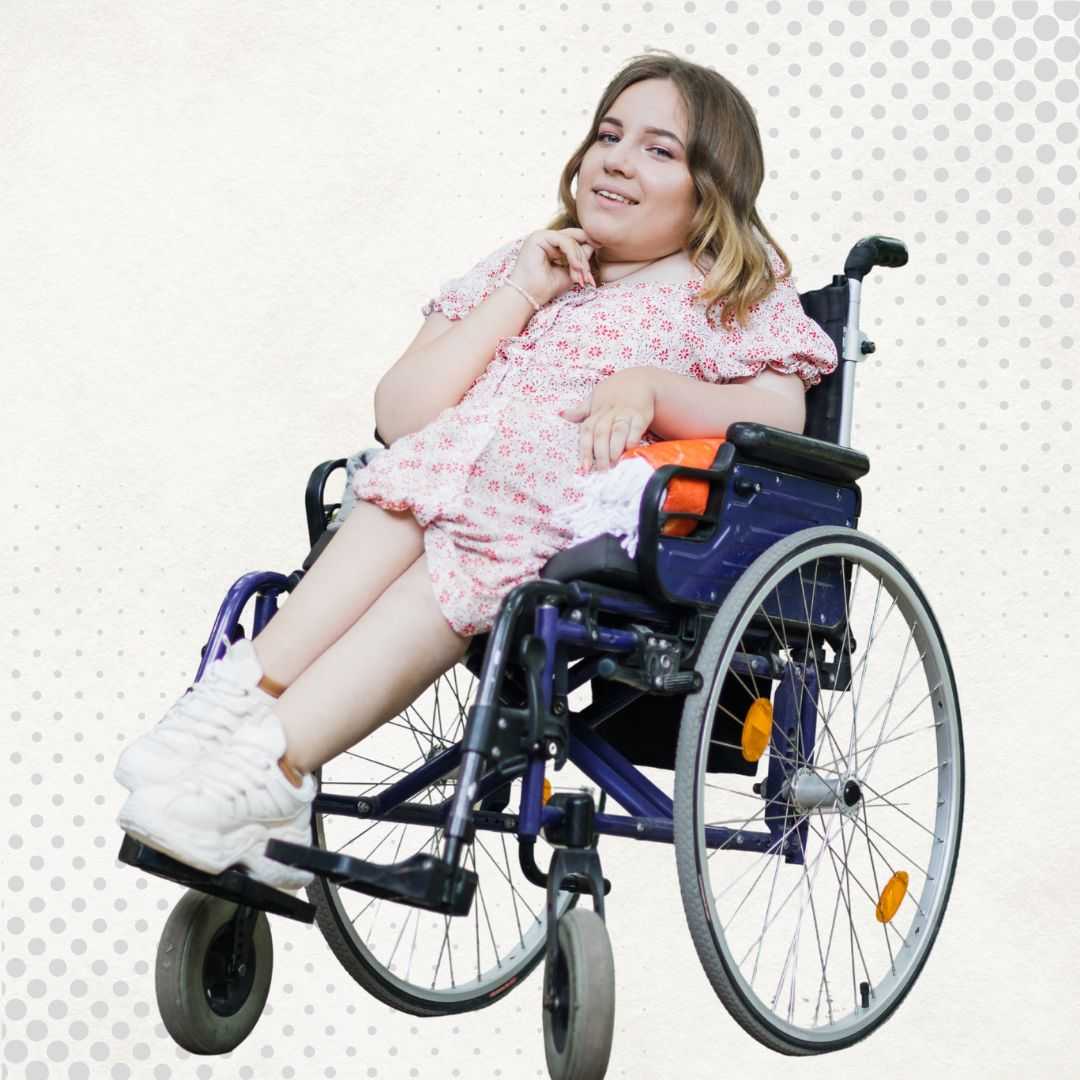
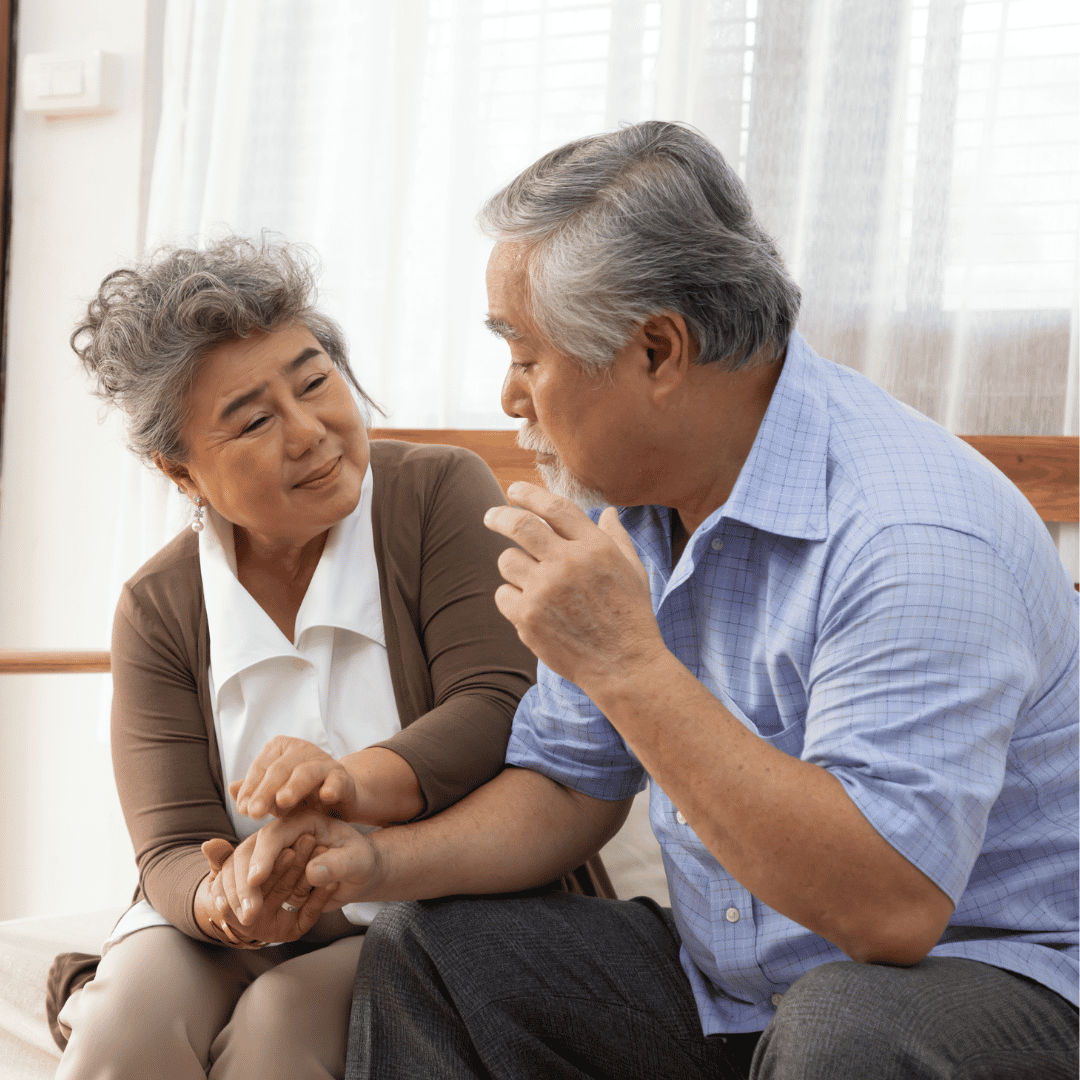
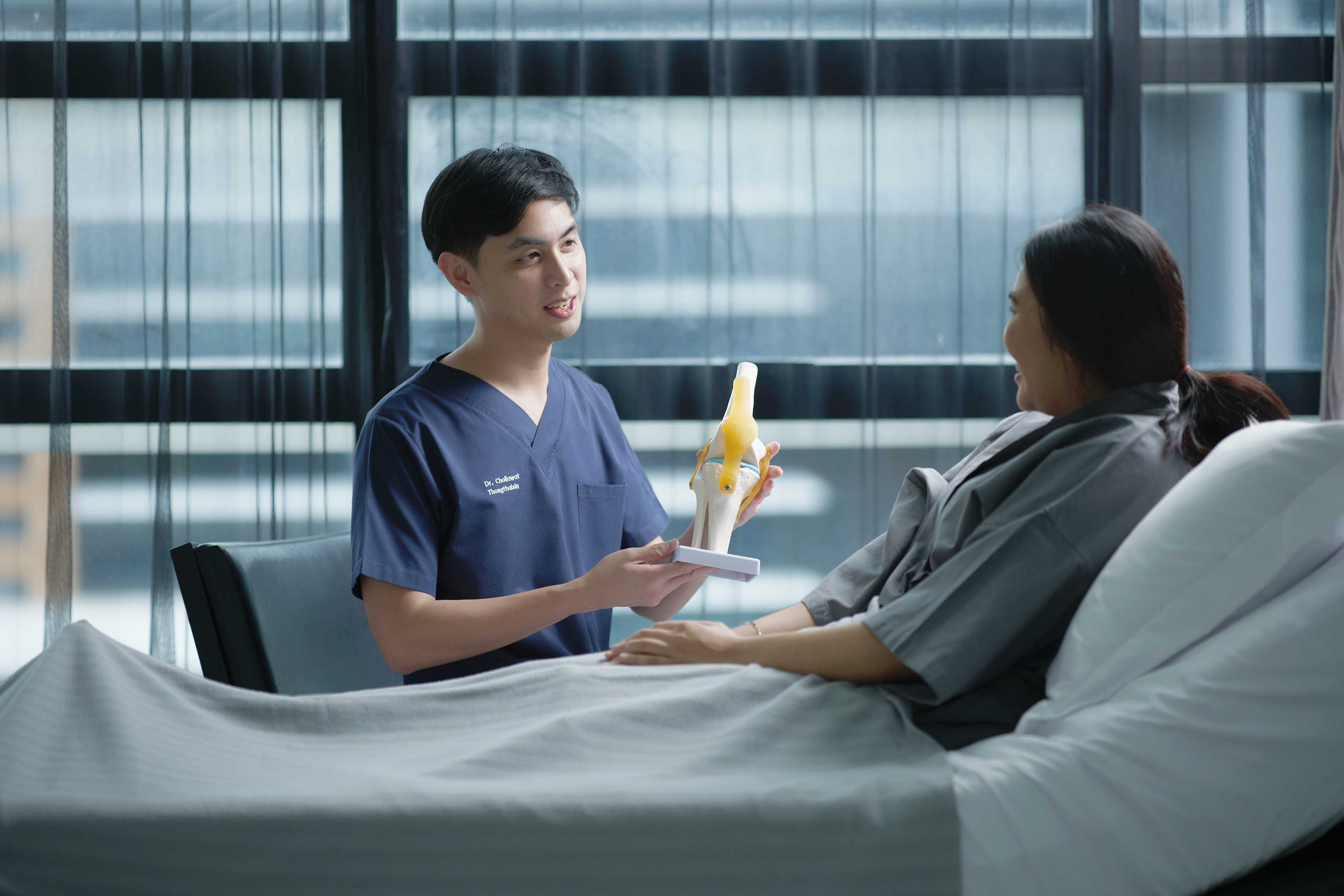
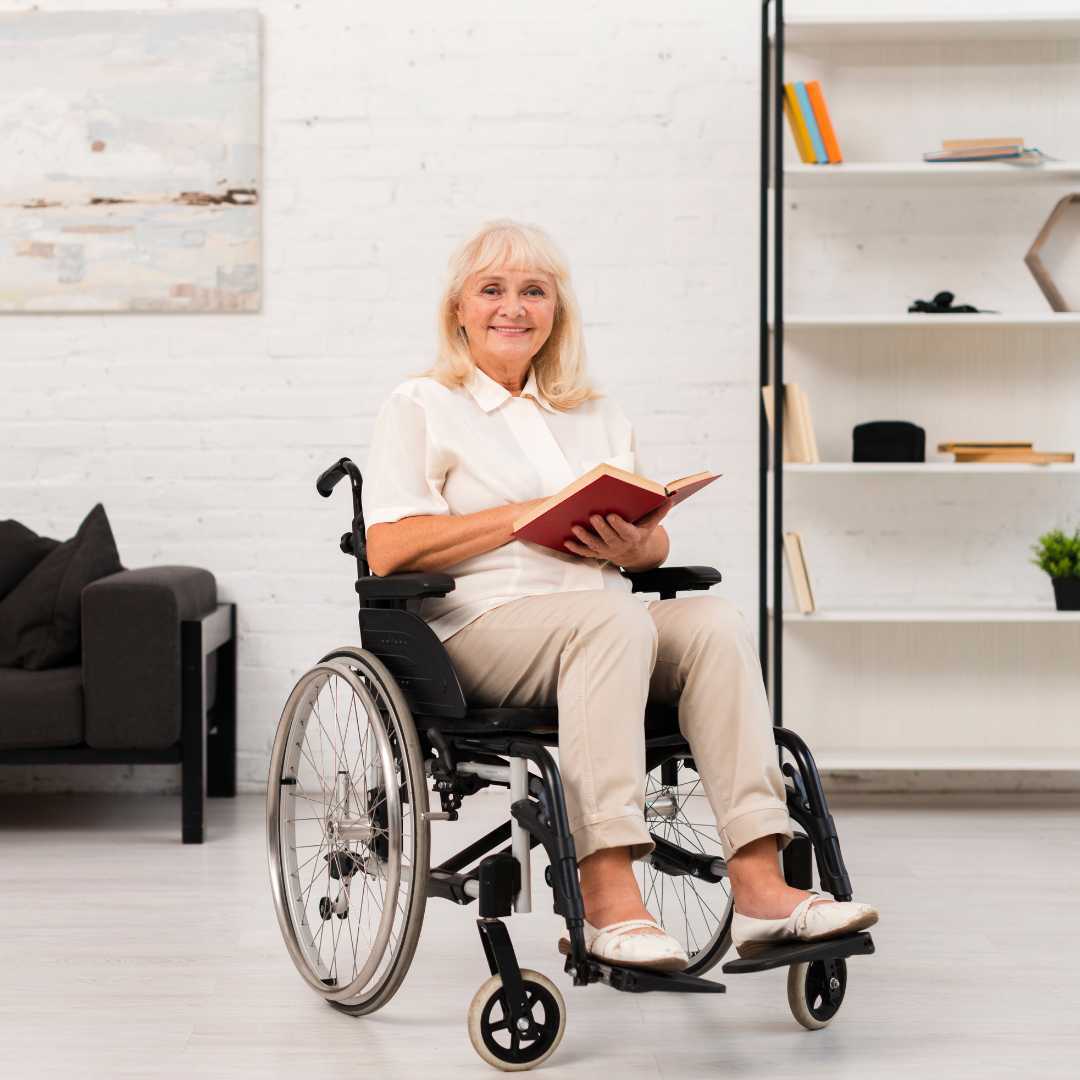
.png)
.png)
-(1).png)
-(1).png)
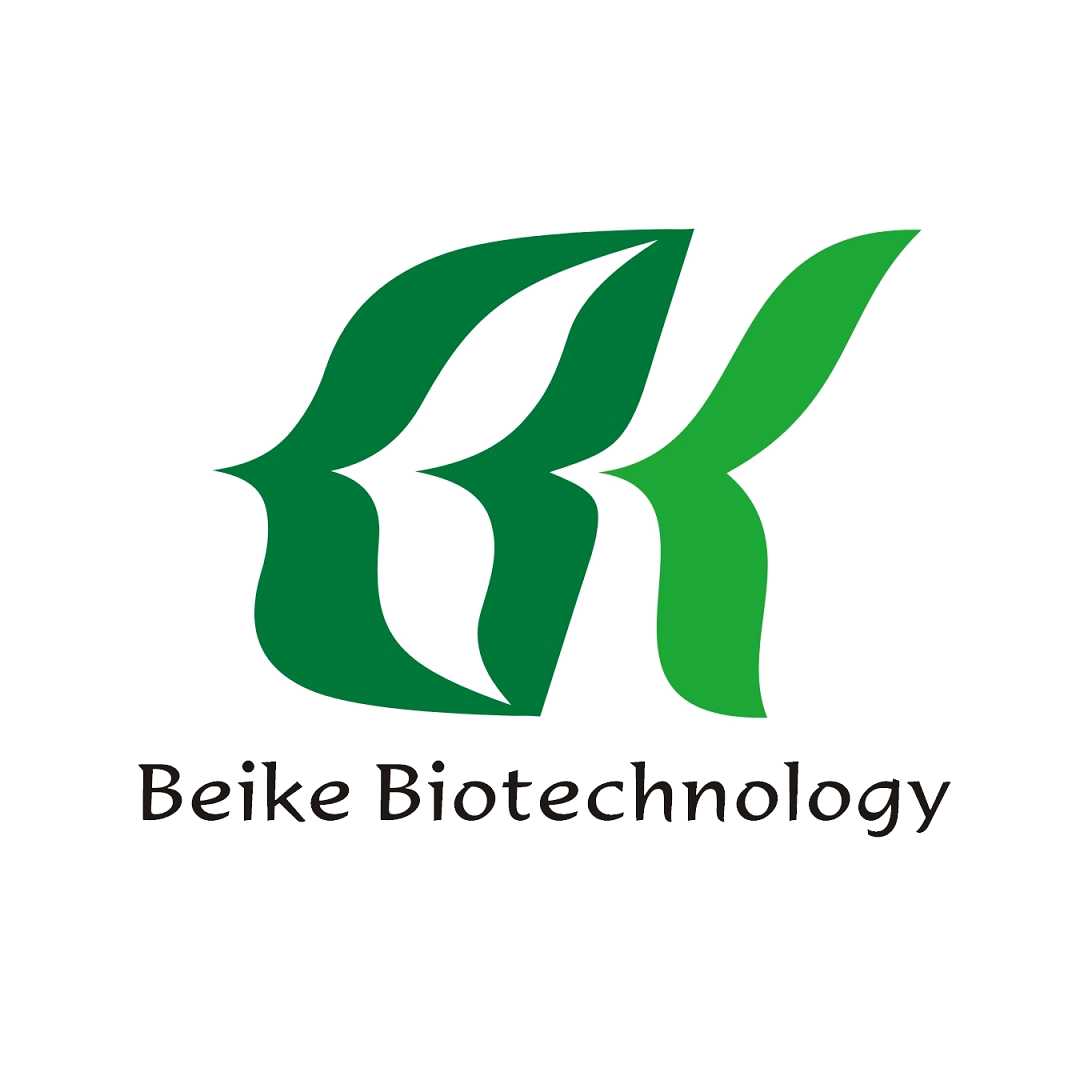

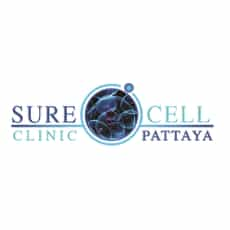
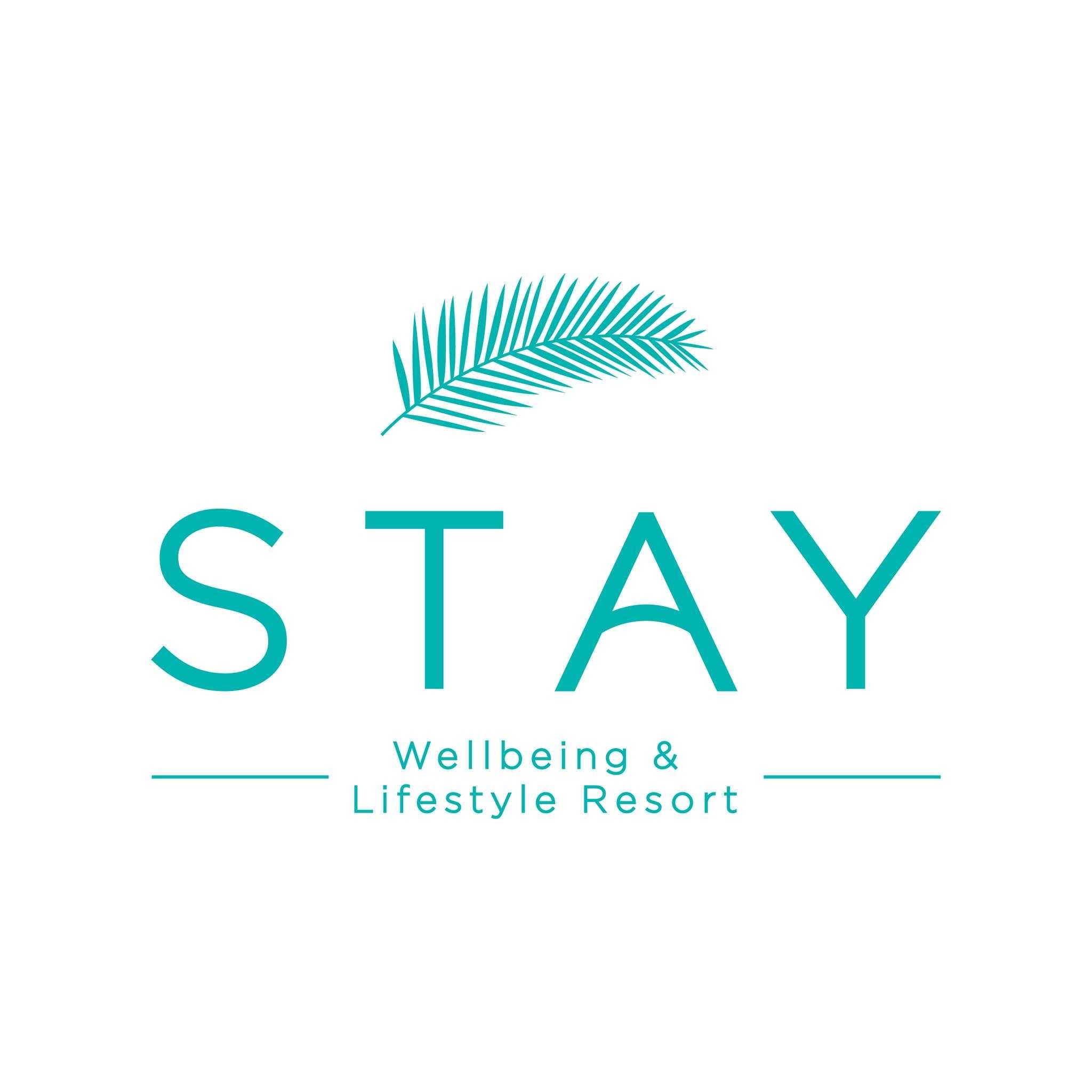
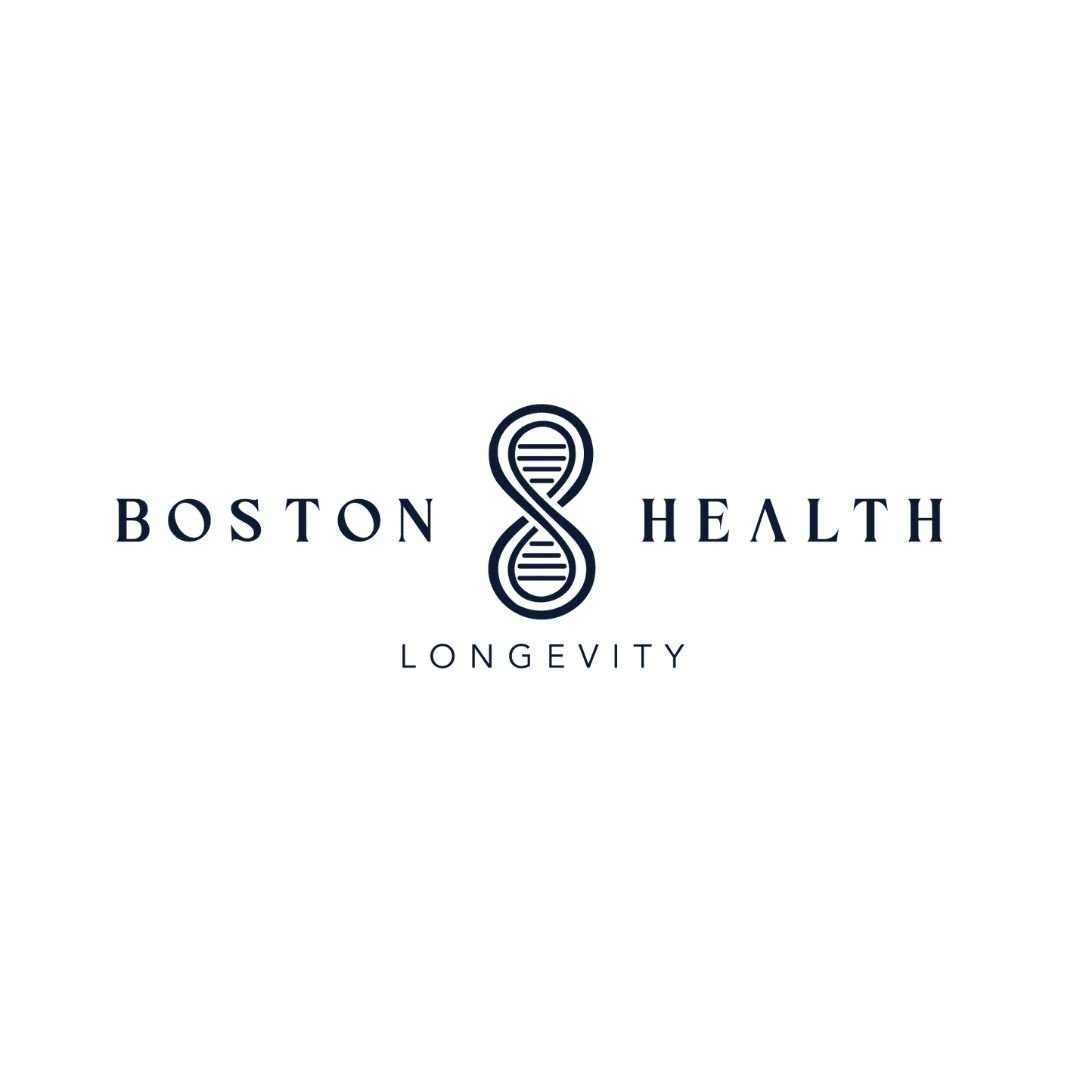

Share this listing